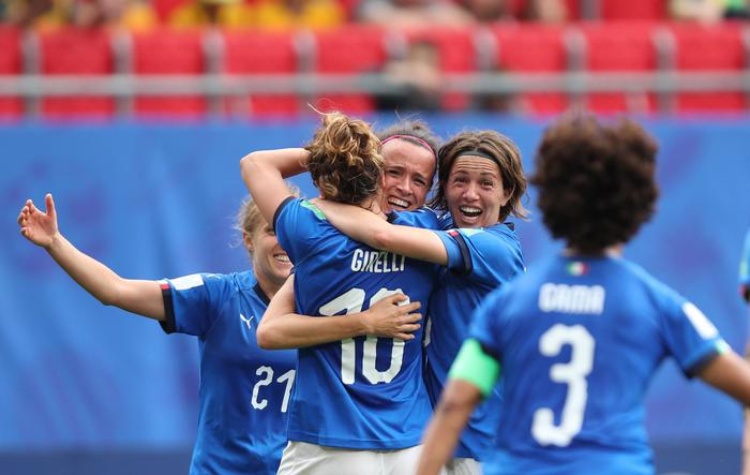Head coach Milena Bertolini and forward Barbara Bonansea accepted the award during a ceremony in Rome.
With Italian soccer dominated by men and offering few opportunities for girls, Bertolini explained how she had to dress up as a boy to play when she was younger.
“I had short hair and went by the name Mario,” she said.
“Now things are changing, thanks to the Italian federation [FIGC] and school programs.
“After the World Cup, the number of girls playing football rose.”
Bertolini and Bonansea said female players are still not considered professionals and therefore are not legally permitted to earn more than €30,000 per year.
“It’s not about the money, it’s a question of rights,” said Bonansea, who also plays for northern Italian giant Juventus.
Italy’s women’s team had not played in a World Cup for two decades and entered as a prohibitive underdog during its opening match against Australia in June.
But Bonansea scored two goals and the Azzurre won 2-1, securing their victory in the fifth minute of stoppage time.
“That goal in the 95th minute shaped our World Cup, both in terms of results and in terms of promoting women’s soccer in Italy,” Bertolini said.
“The strong emotions on the field were transmitted to everyone who was watching.
“I still get goosebumps now just thinking about that goal.”
The Azzurre went on to win their group then beat China in the first knockout round before losing to eventual finalist the Netherlands.
In a country of 60 million people, a total of more than 20 million spectators watched Italy’s five matches on RAI state TV, setting audience records for women’s soccer with each game.
The Invictus Award is dedicated to “promoting the positive effects of sports in terms of integration and emancipation by the vulnerable sections of society”.












